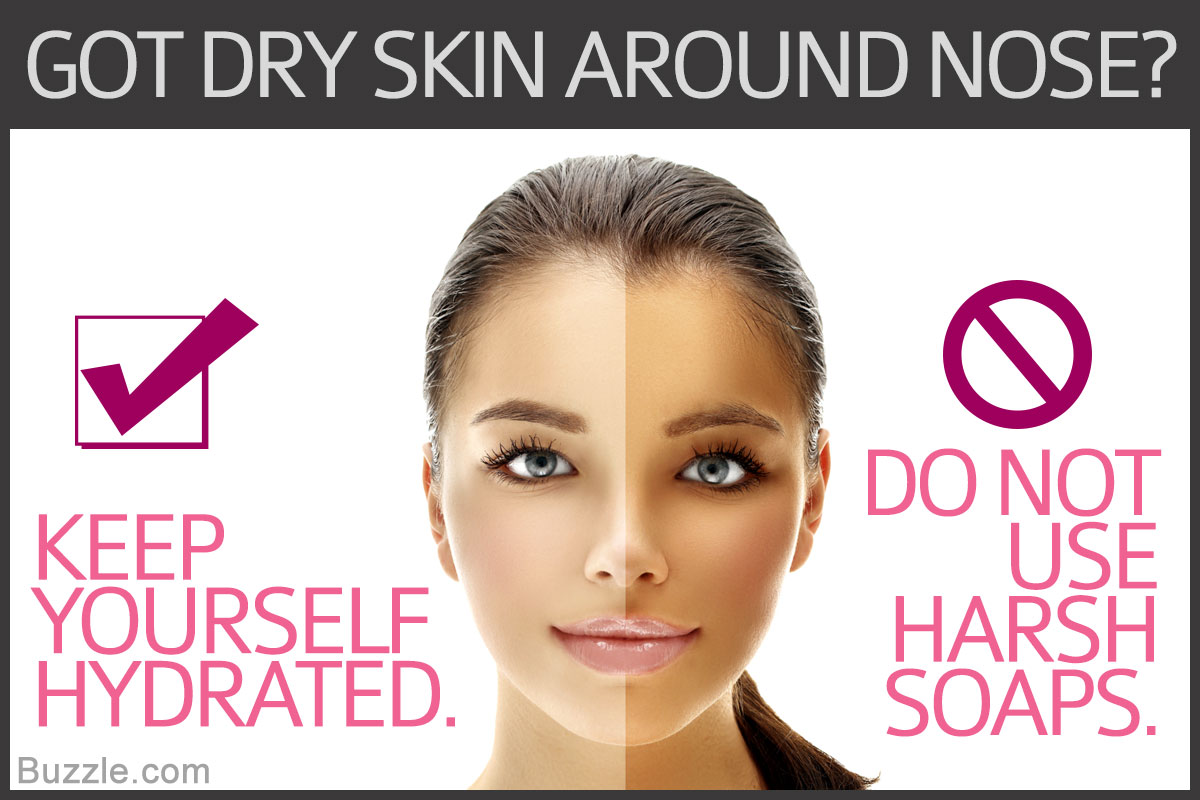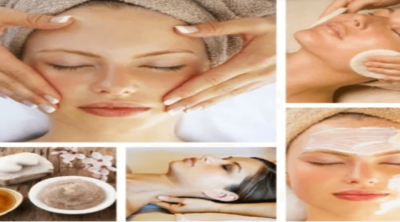
The most common cause for dry skin around the nose is exposure to such environmental conditions as high heat and low humidity. In addition to this, dry skin could also be the result of allergies, acne and a number of skin problems.
Dry skin around nose may be due to harsh weather conditions, or it could also be a sign of an unnoticed medical problem. Winter, when it arrives, brings along with it the persistent problem of dry skin – dry hands, dry feet, and dry skin around nose, mouth and all over the face. However, there are many causes of dry skin around the nose, even apart from winter.
Winter Itch
Cold weather wrecks havoc on the skin. As your skin is robbed of its moisture, it becomes more prone to dryness and itching. To relieve yourself of the problem, make sure that you do not wash your face excessively, or with very hot water. You may opt for a face wash instead of soap; usually they are milder and specially designed to protect the delicate skin of your face. Also don’t forget to moisturize your face daily with a suitable winter face cream.
Facial Psoriasis
Psoriasis is a non-contagious, albeit a chronic disease, that results in flaky red patches on the skin. Facial psoriasis is a common cause of the typical silvery scales and itchy rashes around the nose. Topical steroidal medications such as hydrocortisone creams usually prove to be effective in treating facial psoriasis. A mild form of seborrheic dermatitis may also cause flaky skin around nose.
Dehydration
This is the basic and most common reason for the appearance of dry skin on face. Keratin in the skin needs water to keep it soft and healthy. If however, moisture from the facial skin is lost, this keratin tends to harden, making the facial skin pull and dry up. Dehydration causes the keratin to crumble, resulting in chapping and peeling around the nose. Why the nose? Simple – because the surface area is small, and hence the effect of dehydration is more pronounced around the nose.
Skin Care Products
One of the reasons could be the many products meant to protect your face! The presence of harsh chemicals in skin care products, particularly in soaps and facial cleansers, can result in the skin losing its natural moisture. It is thus advisable to skip soaps and instead stick to the creamy cleansers containing glycerin, especially in dry weather. Moreover, when washing the face, make sure that you clean the residue of soap on the face as it can leave dry skin patches on the face.
Apart from these problems, dry skin around nose can also be the result of exposure to environmental factors like the sun and extreme cold. Allergies or cold and sinus infections may result in peeling and drying of skin around nostrils. In this case, repeated wiping of the nose to keep it clean can result in dry skin around the nose. If that is the problem with you, make sure you use a very soft handkerchief or tissue paper to wipe your nose. Also don’t simply wipe you nose with the hanky or tissue paper; instead blow your nose, clean using water and then wipe it. That way the skin around you nose will not dry up excessively.
Self-care Measures
- Keep yourself hydrated. Drinking six to eight glasses of water a day helps in eliminating the problem of dry skin in general, be it on your hands and feet or your facial skin.
- Stress and lack of sleep can also trigger peeling of the skin around your nose. Meditation and light exercises can help resolve this problem.
- If you have dry skin that flakes, then it might cause blackheads and dark spots as the dead cells clog your facial pores. Regular exfoliation is a must to keep dry skin at bay. A light facial exfoliator, shower loofah or even a washcloth can help you remove the dead skin off your nose.
- If you have dry skin, then you must keep it moisturized. Vitamin E enriched skin creams and natural moisturizers like aloe vera and olive oil can help reduce the skin peeling and dry skin.
- Wash your face with lukewarm water and mild cleansers instead of harsh soaps.
- In addition to this, use cosmetics and other products formulated for your skin type. If you observe constant problems of dry skin around nose despite these measures, then you should consult a dermatologist for proper advice.
Disclaimer: This article is for informative purposes only, and should not be used as a replacement for expert advice.








